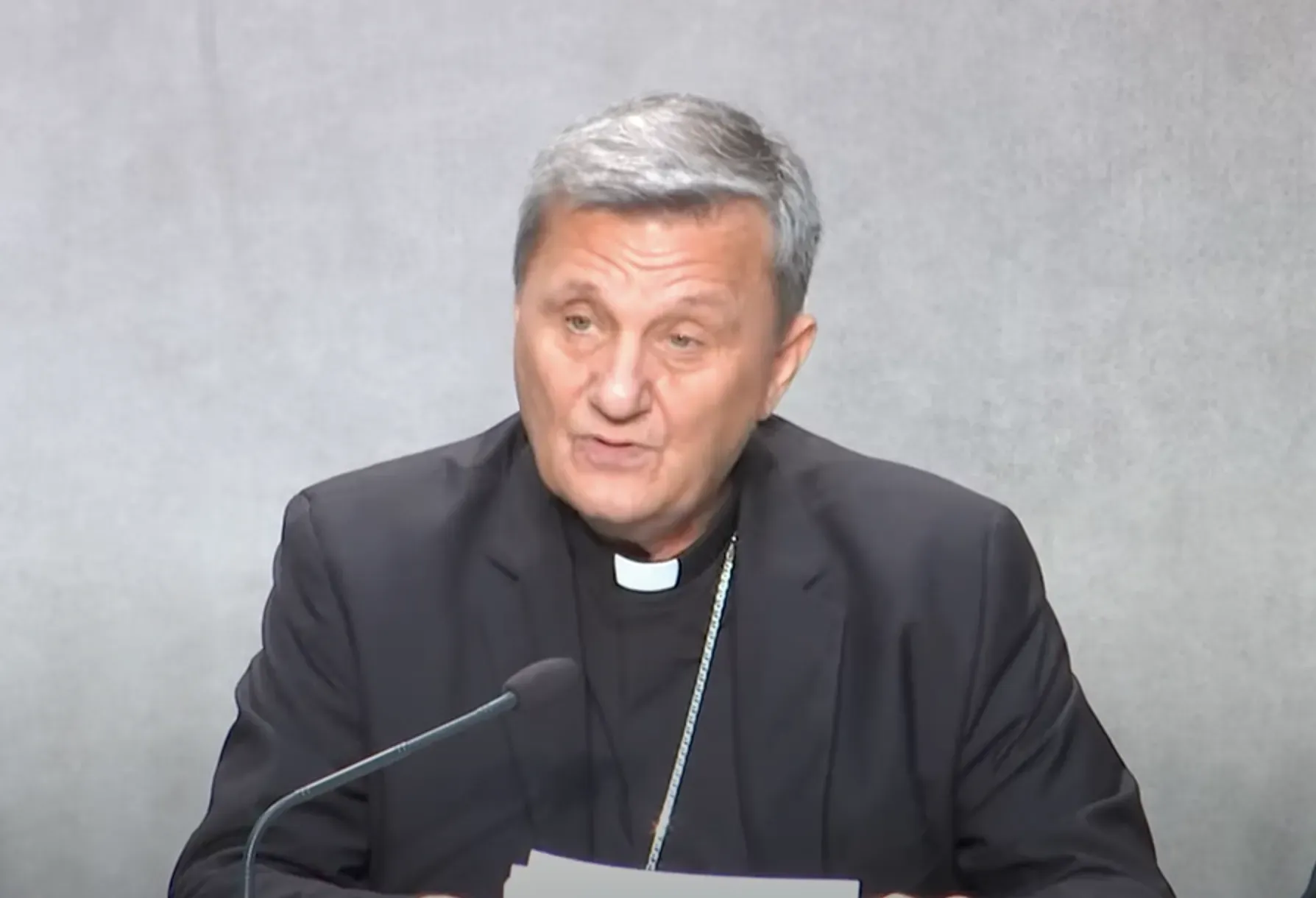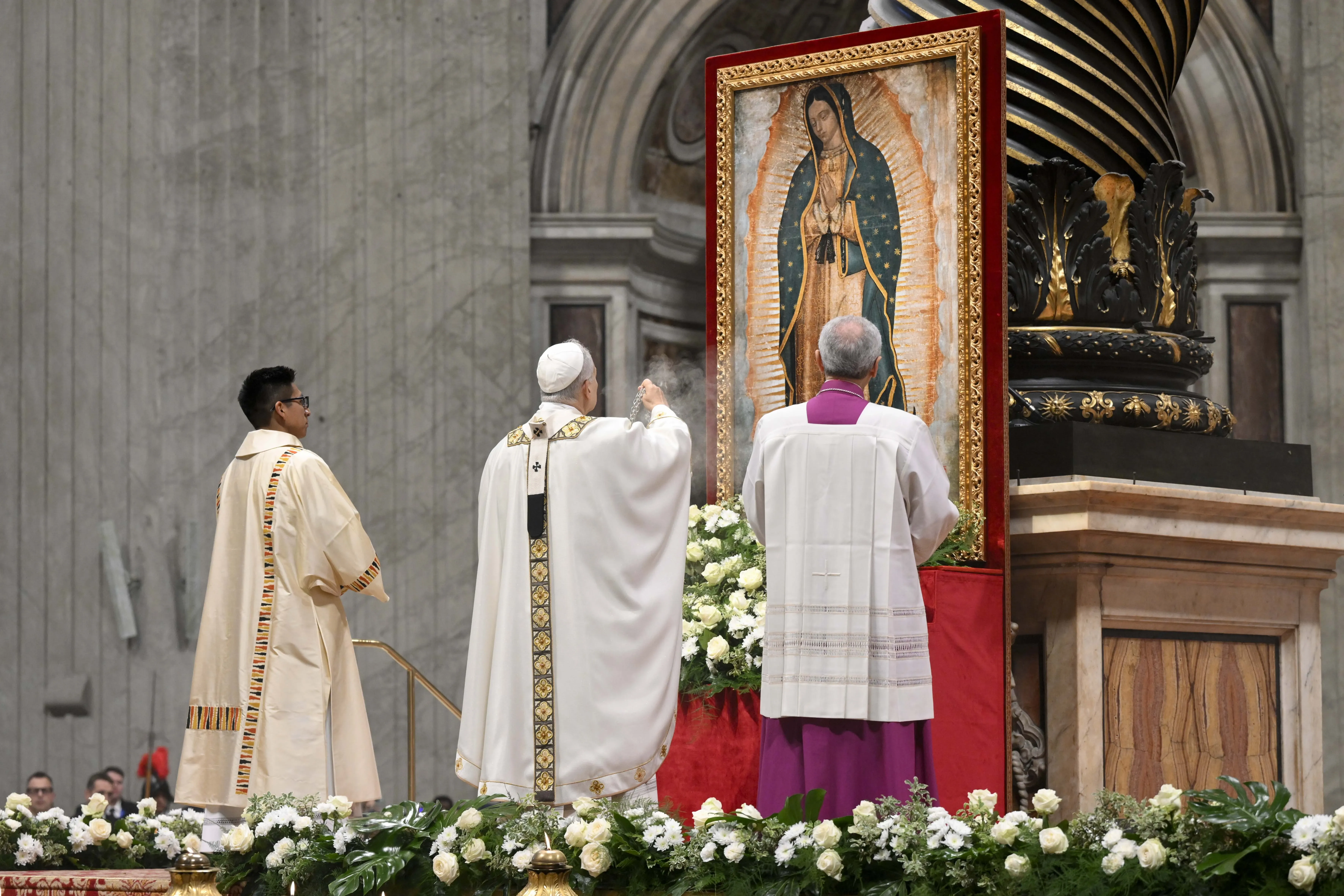At Friday’s press conference, Cardinal Hollerich and Cardinal Mario Grech, secretary general of the Synod of Bishops, emphasized the importance of listening and discernment.
“Precisely because no one in the Church has the exclusive right to the truth, the consultation of the People of God demands discernment,” Grech said.
“Not everything spoken is the voice of the Spirit: one must grasp within the sound of voices, the voice of the Spirit,” he added. “Therein lies the function of discernment, which is already operative in the process of listening, when the community converges on a point.”
Questioned by a journalist about whether the voices of Catholic priests and lay people who love the Latin Mass would be listened to in this process, the head of the Synod of Bishops, Grech, said the listening process means not only for bishops to listen to the people but “also the bishop has to be listened to.”
“Because sometimes there is a risk of it being a monologue, on one side or the other,” he said.
(Story continues below)
“Listen to what the Spirit is telling the Church of today. This is the task, the goal of this synodal process. So the Church learns to put into practice this synodal style. But nobody must feel excluded, nobody must not suffer because his or her voice is not heard,” he said.
A team of hand-picked experts
The document for the continental phase of the synod, which can also be considered the first Instrumentum Laboris, or working document, will be drafted by a team of “experts,” Cardinal Grech said.
The 20-some people drafting the document include Catholic priests, university professors, and one religious sister. A professor from the continent of Africa has not yet confirmed her participation.
Among the experts chosen are Father David McCallum, SJ, executive director of the US-based Discerning Leadership Program; Father Ormund Rush, associate professor of religion and theology at the Catholic University of Australia; Monsignor Philippe Bordeyne, president of the Pontifical John Paul II Institute for Studies on Marriage and Family in Rome; and Austen Ivereigh, a biographer of Pope Francis and coordinator of the UK-based project “The Road to a Synodal Church.”
The members of the synod’s ordinary council will also provide suggestions for amendments and give the document its final approval.
Hijacked synod?
During the question and answer portion of the press conference, Cardinal Hollerich was asked about comments he made in an interview earlier this year, in which he appeared to imply he disagreed with the Church’s teaching on the immorality of homosexual acts and wanted it to change.
The cardinal was asked if he wanted the Synod on Synodality to bring about a change in Church teaching on this issue.
“I have no personal agenda for this synod,” the cardinal and bishop of Luxembourg responded.
“I fully believe in the tradition of the Church, and what I think is important in this process is not changing doctrine,” he said.
He added that he thinks it is important to listen to people, including parents, and to have “a change in attitude,” so that everyone can feel at home in the Church.
“This welcome,” Hollerich said, “does not mean there cannot be discussions ... But if we close the door, we push people into despair, and that is something we do not want.”
He said his mission in the synod, from the pope, is “to listen and to serve,” and he expressed a desire to be personally changed, to experience conversion, by the synodal process.
The cardinal also dismissed a question asking if he was afraid that political interests might hijack the synod.
“I’m not afraid,” he said, “because I believe in God, prayer, meditation, and listening to people gives me hope and strength. You have to walk and when you walk in the desert like in the Book of Exodus, there are some temptations, but with the help of God, we can pass through these temptations.”
Cardinal Grech also responded to the question, commenting that “the synod will be hijacked by one, the Holy Spirit, if I can use this term.”
Hollerich said the work of the synod “is not to create a ‘shock’ for the Church,” as one journalist had asked, “but to listen to what the People of God are saying.”
“It is a very complex thing that cannot be reduced to simple positions, and I think that the model of the synod is a model based on ecclesial consensus,” he said.
Hannah Brockhaus is Catholic News Agency's senior Rome correspondent. She grew up in Omaha, Nebraska, and has a degree in English from Truman State University in Missouri.








